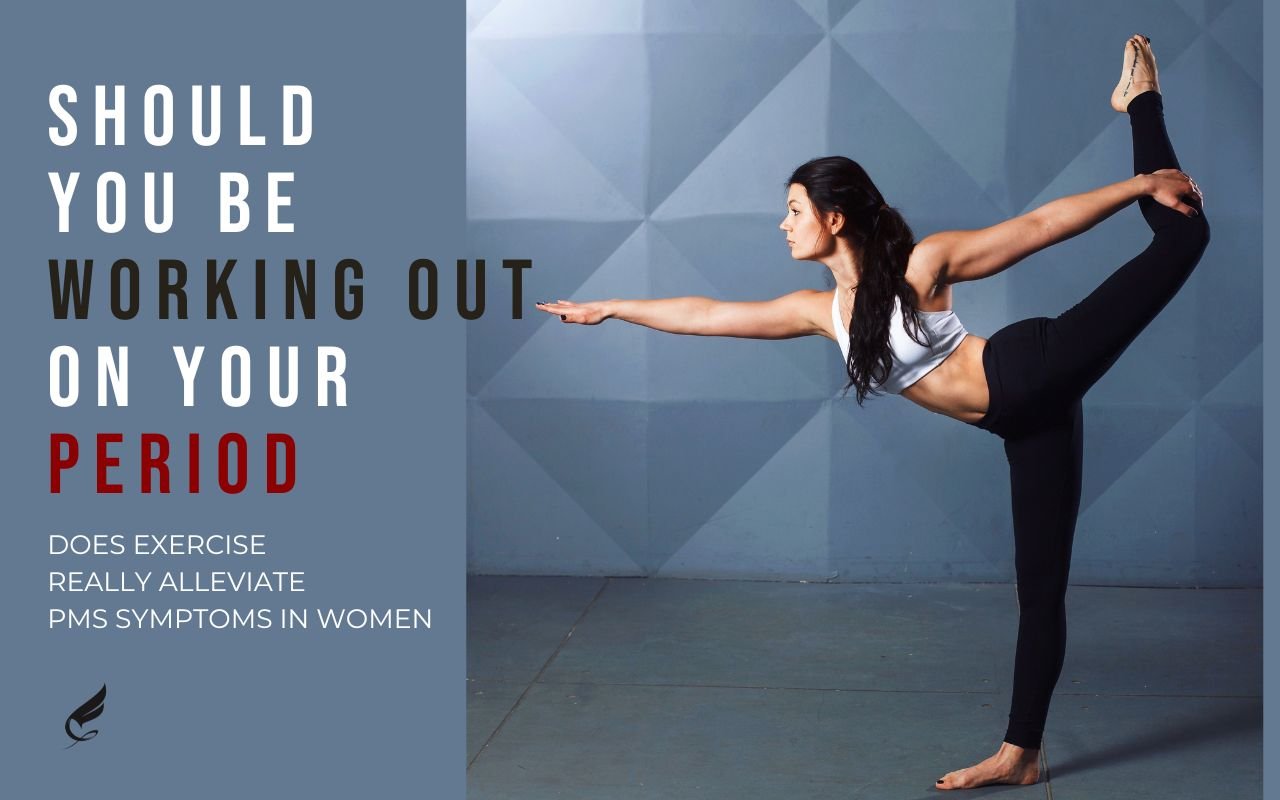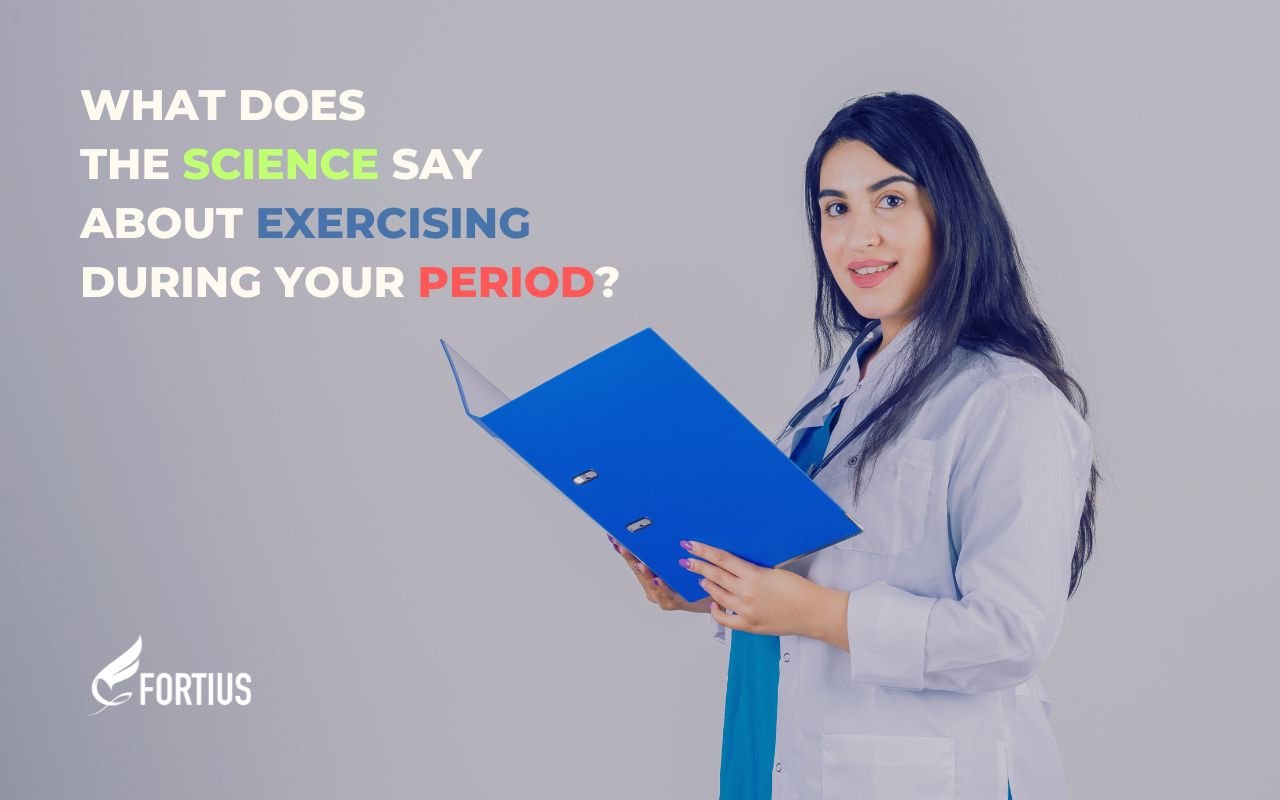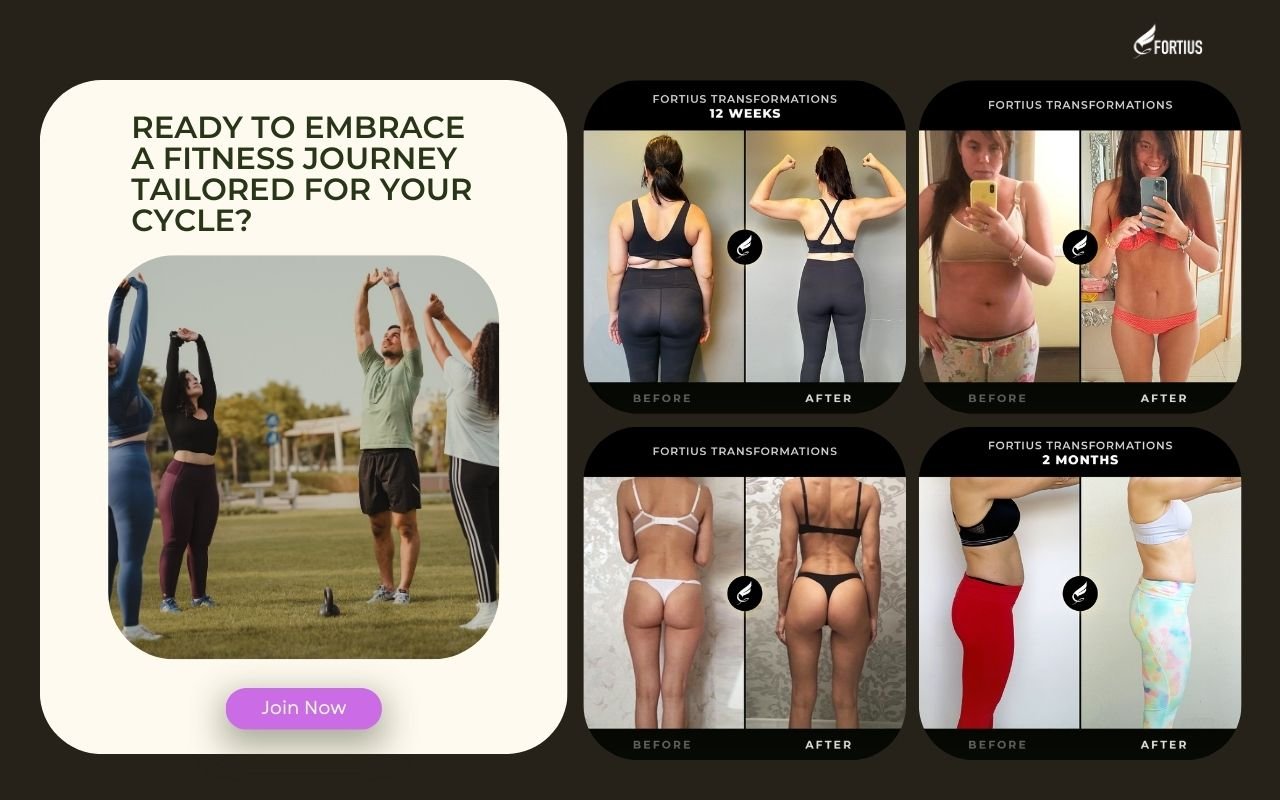Should You Be Working Out on Your Period | Does Exercise Really Alleviate PMS Symptoms in Women
The menstrual cycle is genuinely the natural wonder of life, which is often misunderstood, particularly by men, whether they are friends, partners, or personal trainers!
It can, in all honesty, be a total drag, and It can ruin your efforts to stay fit and healthy, Stick to your diet, training program, and even your day-to-day tasks! While there is absolutely no one-size-fits-all answer, understanding your menstrual cycle and how hormones change during different phases can help you prepare better in the sense that you will know when is the right time to push harder, perhaps be a bit stricter on your diet and when it might be wise to back off a bit and give your body the rest it needs.
Understanding the different phases in the menstrual cycle
The menstrual cycle is divided into four distinct phases:
The follicular phase,
Ovulatory phase,
Luteal phase and
Menstrual phase.
Follicular phase
During the follicular stage—which typically lasts about 10-12 days before ovulation—your body produces more estrogen and your energy levels and mood tend to be quite good. This is the best time for lots of movement; whether that’s getting in a few intense HIIT sessions or making some serious strength gains. You will also feel more energized and motivated to stick to your diet plan!
Ovulatory phase
This phase typically spans from day 12-14 (or sometimes longer) when an egg is released from the ovary and estrogen and testosterone levels are at their peak. This is usually when women feel most powerful, energetic, and motivated—so this should be the period when you double down on your efforts in the gym as you can really maximize the results you are aiming to achieve!
Luteal Phase
The luteal phase begins immediately after ovulation until you start your period. During this time, your hormone levels drop significantly and this is when most women will start to feel tired, unmotivated or even experience mood swings and cravings. During the luteal phase it is crucial that you listen to your body, and if necessary take a step back from the intense workouts and harsh dieting conditions. This does not mean that you should avoid exercise altogether as light exercise has been shown to have a positive effect on the body, but it does mean that you should make sure not to push yourself too hard. You should also not feel bad if you satisfy your cravings with a small chocolate bar or your favorite cookie, or any snack that your body is craving. The reason why you are craving these foods is directly connected with your hormones, so don’t beat yourself up too much about it!
Menstrual phase
This is the start of a new cycle and usually lasts for around 3-7 days. During this time, energy levels tend to be quite low and you will likely feel tired or even bloated. During this phase you also need to be careful with the intensity of your workouts. I would make sure that you communicate how you feel to your trainer and that you do not attempt to set any personal records during this period, however as I mentioned earlier there is no cookie cutter approach to these things so each individual needs to evaluate how you feel during this phase of your cycle!
Should you take complete rest from training during the menstrual phase?
In cases when you have severe menstrual pain and menstrual cramps, and/or heavy bleeding it would really not make sense to go lift some heavy weights. If your period symptoms are severe just stay at home for 24-48 hours until you feel better. I would still advise some type of movement like a light outdoor walk, as it can really have an positive impact on your mood, energy levels, and can get your mind of some of the period related symptoms.
What does the science say about exercise and premenstrual symptoms?
Common questions and answers
Why do I get night sweets during my period?
Hormones like progesterone and estrogen cause sugar cravings, these hormones are usually at their peak right before you start your period. This is why it’s really important that you stick to a healthy diet plan during this time; otherwise, you could be giving in to those sugary cravings more often than you’d like, which can have a direct impact on your blood sugar regulation and can result poor sleep, night sweets and increased body temperature.
Does stretching help relieve menstrual pain?
Any type of activity that increases blood flow will have a somewhat positive effect on pms and will relieve tension and pain associated with it. If stretching is something you enjoy doing then most definitely go for it. You could also try yoga as some poses like the child's pose and other gentle stretching positions can offer relief from cramps.
Are painkillers ok while experiencing menstrual symptoms?
I would say that painkillers should be your last resort when dealing with menstrual pain, as there are many natural remedies that you can try before making the decision to take any type of medication. Of course, if all else fails and you have tried everything then I would advise you consult your doctor before taking anything.
Ready to Embrace a Fitness Journey Tailored for Your Cycle?
Embarking on a personalized fitness journey, attuned to your menstrual cycle, can transform your health and well-being. Our personal trainers understand the unique challenges each woman faces and can design a program that complements your hormonal cycle, ensuring you get the most from your workouts while respecting your body's needs. You don't need to navigate this journey alone! Get in touch today and let us help nurture a healthier, stronger, and more confident you. Contact us now and let's start this empowering journey together!
Conclusion
We can conclude that the fitter and healthier a woman is the easier she will manage her period pain and other period symptoms. I would also like to note that it is crucial to listen to your body and adjust your physical activity accordingly. Do not fall victim for "I must perform and diet no matter what", if you manage to work really hard 3 weeks in a month you can take a step back those few days and still achieve great results. It is all about finding the right balance and understanding that each woman is different, her body will react differently to corresponding hormones, and therefore it is impossible to apply a one-size-fits all approach when it comes to period training.
At the end of the day, it’s important to take good care of yourself during your period so that you can enjoy the other three phases of your cycle without any stress or worry. Periods are a natural part of life and should be embraced, not feared!





